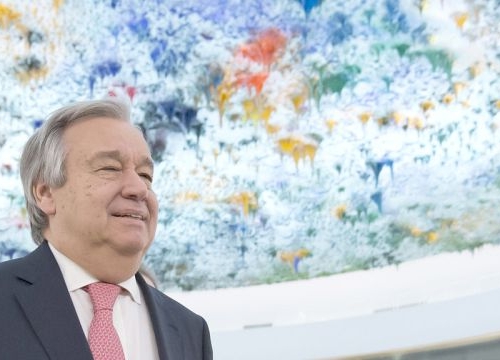UN Secretary General Refers to our Work in his Latest Report on the Status of the Human Rights Treaty Body System


UN Photo/Jean-Marc Ferré
7 February 2020
In his latest report to the United Nations (UN) General Assembly (UNGA) on the status of the human rights treaty body system, the UN Secretary-General António Guterres refers to our work on the future of UN treaty bodies.
‘This work started back in 2015 with the Academic Platform on Treaty Body (TB) review, a major project that involved more than 300 academic partners and experts and developed key recommendations to improve the work of UN TBs underlines’ Felix Kirchmeier, Executive Director of the Geneva Human Rights Platform.
‘This project culminated in a report published in 2018, and we are very pleased to see that several states across all continents and regional groups, as well as NGOs, experts and members of UN TBs have endorsed a number of these recommendations’ he adds.
Continued Involvement
Today, the Geneva Human Rights Platform (GHRP) contributes to this review process by providing expert input via different avenues, by facilitating dialogue on the review among various stakeholders, as well as by accompanying the development of a follow-up resolution to 68/268 in New York and in Geneva.
‘Our ongoing contribution notably involves regular briefings in Geneva and New York, guidance to improve the handling of individual complaints, tools to implement recommendations and optimize the planning of TB’s sessions, and comparison with the UN Universal Periodic Review System to identify good practices’ explains Felix Kirchmeier.
Next Steps
The release of the Secretary-General Report, the third and last in the lead-up to the 2020 TB Review will trigger the move of the debate from Geneva to New York, where discussions on a follow-up resolution to 68/268 should be expected in April.
‘Those negotiations provide an opportunity for States to address the challenges and shortcomings in the TB system and to ensure the sustainability of the monitoring system they themselves have put in place. The options are on the table, now it’s time for States to act’ adds Felix Kirchmeier.







